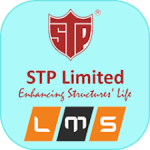Introduction
In the realm of academic and scholarly pursuits, journal it articles stand as the quintessential medium for disseminating research findings, insights, and advancements. Crafting an impactful journal article isn’t just about conveying information; it’s about contributing to the collective knowledge of humanity and leaving a lasting imprint on your field of study.
Understanding the Significance of Journal Articles
Journal articles serve as the lifeblood of academic discourse, offering a platform for scholars, researchers, and experts to share their discoveries, theories, and analyses with the global community. These articles are not mere publications; they are gateways to innovation, critical thinking, and intellectual progress.
The Anatomy of a Stellar Journal Article
- The Gateway to Your Research
The title of your journal article is akin to a storefront window display – it must captivate the audience’s attention and entice them to delve deeper. A compelling title should be concise yet descriptive, offering a glimpse into the essence of your research while piquing curiosity.
- A Snapshot of Your Study
The abstract serves as a concise summary of your entire article, encapsulating the research question, methodology, findings, and implications in a few succinct paragraphs. It acts as a roadmap for readers, guiding them through the nuances of your study and helping them determine its relevance to their own research interests.
- Setting the Stage
The introduction lays the groundwork for your research, providing context, outlining the research gap, and articulating the significance of your study within the broader academic landscape. It should hook the reader’s interest, establish the rationale for your research, and clearly delineate your objectives and hypotheses.
- Literature Review:
The literature review serves as the intellectual foundation of your research, synthesizing existing scholarship, identifying key debates and trends, and positioning your study within the larger scholarly conversation. It demonstrates your familiarity with the relevant literature and underscores the novelty and importance of your contribution.
- Methodology:
The methodology section elucidates the nuts and bolts of your research design, detailing the methods employed, the data collected, and the analytical techniques utilized. It should be sufficiently detailed to allow for replication and critique while also showcasing the rigor and validity of your study.
- Results:
The results section presents the empirical findings of your research in a clear, organized manner, using tables, figures, and descriptive statistics to elucidate patterns, trends, and relationships. It should be objective, precise, and directly aligned with your research questions and hypotheses.
- Discussion:
The discussion section is where you interpret and contextualize your findings, exploring their implications, addressing any limitations or caveats, and suggesting avenues for future research. It’s an opportunity to reflect on the broader significance of your study and its contribution to the field.
- Conclusion
The conclusion succinctly summarizes the key findings of your research, reiterates its significance, and underscores the implications for theory, practice, or policy. It should leave a lasting impression on the reader, reinforcing the value of your study and inspiring further inquiry.
Tips for Writing an SEO-Optimized Journal Article
Crafting a journal article that not only contributes to your field but also ranks high on search engine results requires a strategic approach to content creationKeyword Research: Identify relevant keywords and phrases related to your research topic using tools like Google Keyword Planner or SEMrush.
- Optimized Title and Meta Description: Incorporate your target keywords naturally into the title and meta description to improve search visibility and click-through rates.
- Quality Content: Focus on producing high-quality, informative content that addresses the needs and interests of your target audience. Avoid keyword stuffing and prioritize readability and relevance.
- Internal and External Linking: Include relevant internal links to other pages on your website and external links to authoritative sources to enhance credibility and improve user experience.
- Optimized Images: Use descriptive filenames and alt tags for images to improve accessibility and enhance search engine optimization.
- Mobile Optimization: Ensure that your journal article is optimized for mobile devices, as an increasing number of users access content on smartphones and tablets.
- Social Media Promotion: Share your article on social media platforms to increase visibility, engagement, and backlinks.
Conclusion
In conclusion, journal article writing is both an art and a science, requiring meticulous attention to detail, clarity of expression, and adherence to academic conventions. By following the tips outlined in this guide and honing your writing skills, you can create journal articles that not only contribute to the advancement of knowledge but also resonate with readers and rank high on search engine results.
Certainly! Journal article writing is a cornerstone of academic and scholarly communication, facilitating the exchange of ideas, discoveries, and insights within various fields of study. These articles typically undergo a rigorous peer-review process to ensure accuracy, validity, and scholarly integrity.
Significant
One significant aspect of journal article writing is its role in advancing knowledge and driving innovation. Researchers and scholars use journal articles to disseminate their findings, theories, and methodologies, thereby contributing to the collective understanding of their respective disciplines. This dissemination of knowledge is crucial for building upon existing research, identifying new research directions, and fostering intellectual discourse within academic communities.
Moreover, journal articles play a pivotal role in academic credentialing and career advancement. Publishing in reputable journals is often a prerequisite for securing funding, earning academic tenure, and gaining recognition within one’s field. As such, the quality and impact of journal articles can significantly influence an individual’s academic and professional trajectory.
In addition to their academic significance, journal articles also serve as valuable resources for practitioners, policymakers, and the general public. They provide authoritative insights into various topics, inform evidence-based decision-making, and contribute to the advancement of society as a whole.
Overall, journal article writing is a multifaceted endeavor that requires precision, clarity, and adherence to disciplinary conventions. Whether it’s conducting original research, synthesizing existing literature, or interpreting empirical findings, authors must navigate a complex landscape of scholarly communication to make meaningful contributions to their fields.





